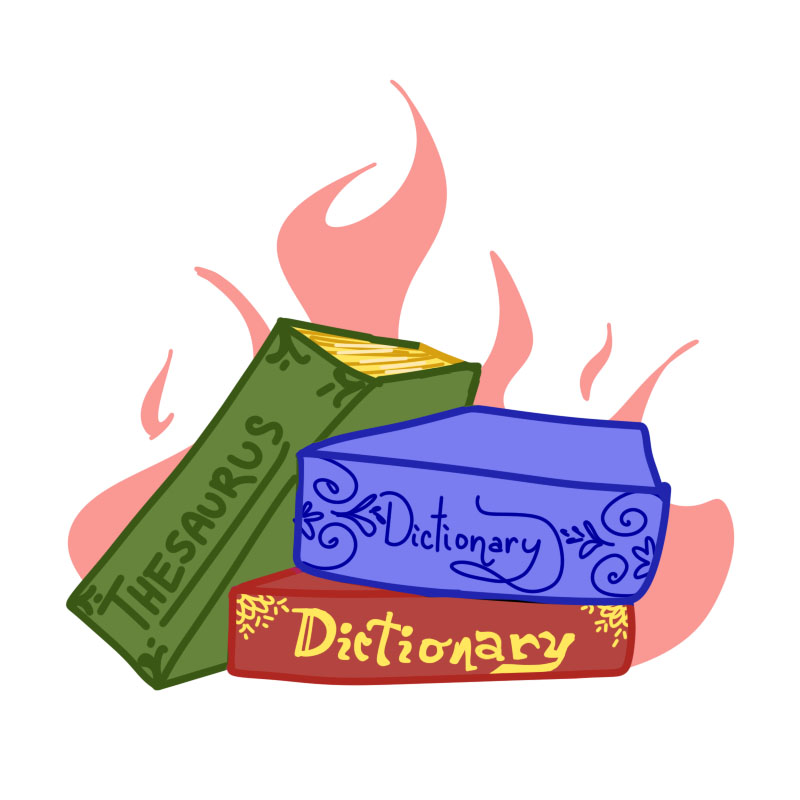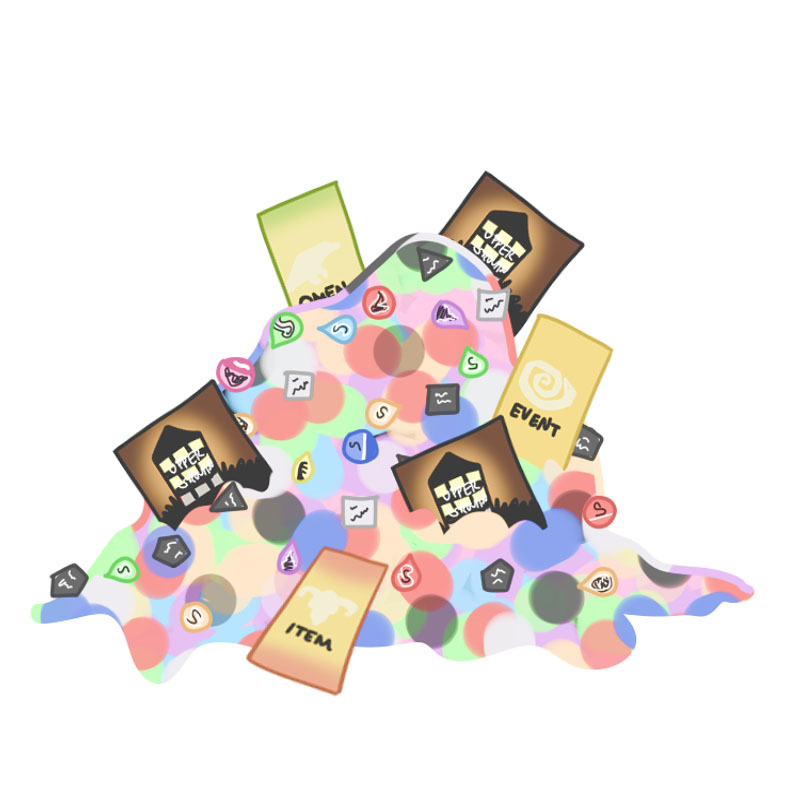Drowning in a sea of tiny cardboard
By: Macecyn Klassen
One of my favourite board games right now is Betrayal at House on the Hill, which is practically flawless in almost every way — except for the infuriatingly messy box.
The game relies on a number of small, labelled pieces that are randomly put into play, mostly in the form of tokens that can represent things like monsters, victims, and secret passageways, as well as cards for events and items. Being that this is a main mechanic of the game, why is it that I’m now looking on Etsy for an extra 3D-printed organizer just to keep the tokens in one place without a plastic bag? Every game is bogged down by someone at the table having to root through a wealth of loose tokens for the one they actually need, and even the process of getting the cards out of their little slot ends up making you look like you’ve forgotten how hands work.
If your $80 board game has spurred a not-insignificant number of fans to come up with marketable solutions to your terrible organization, something has gone seriously awry, and you should be ashamed of yourself. Still, Betrayal comes out on top: the game is so much fun and so replayable that I’m going to go and buy the expansion pack — and happily spend even more money for the privilege of dealing with a doubling of my token collection.

Inordinately formalistic vernacular is gratuitous
By: Andrea Sadowski
If there is one thing I dislike about the Bachelor of Arts program, it is just how many research papers I have to read and comment on that look like they’ve been put through a pretentious-academic-language filter. If you can’t explain your complex theory or findings in such a way that a five-year-old child can understand it, then you can’t explain it very well. If you need to jazz up your paper with heaps of cumbersome words in each sentence, then you can’t write very well. You’re not fooling anyone; you don’t sound smarter just because you use all those big words. Just get to your point already.
I get it; you’re trying to impress your peers to get a tenure or a grant or some fancy award or title, but you academics fail to understand that the students reading your writing cannot comprehend what you’re trying to say. So, what happens is that the paper you spent years doing research for gets skimmed through in search of one suitable sentence which is incorporated into a pitiful paper that’s due the next day.
If you want your research and writing to be read by anyone other than the most elite experts in your field, just use simple language. Try to remember a time when you were an undergrad and sat at your desk crying as you pulled out your hair from the agony of reading ghastly, complicated papers. I’m not saying that you need to go so informal that you start putting emojis in your work, but please, just write in simple enough language that I don’t have to re-read the same paragraph five times to sort of get it. If I put a great deal of time and effort into an essay or writing project, I want the readers to actually understand and enjoy what they’re reading. To all pompous academics: you can write a strong, powerful essay without being needlessly verbose.
(Rain Neeposh/The Cascade)


